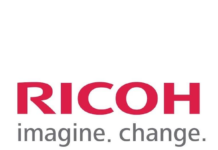Ricoh SA is entering the managed document services (MDS) market to meet the rapidly evolving requirements of the local market and make the next natural progression from managed print services (MPS). The company has been gearing skills and expertise to build on its managed print services offering, from which MDS stems, and draws on its international parents scrutinisation of thousands of projects to focus on top customer concerns.
Customers are primarily dealing with cost control, environmental sustainability, information security, governance, business process efficiency, organisation change management, information worker productivity, information optimisation, and strategic infrastructure, said Michael Barnett, MDS business manager at Ricoh SA.
It is a misnomer to think that international markets have long ago progressed to seeing the necessity for and employing MDS while South African organisations have been laggard. A 2010 study conducted by IDC on behalf of Ricoh demonstrated that many C-level executives underestimated the impact of document costs on their organisations. The real impact, according to the study, is that a large business can save 15% of its annual revenue through effective document management.
A significant and growing challenge that companies will face in the future is managing more documents with fewer resources. Based on a series of European focus groups, research firm IDC predicts that by 2020 digital information will have grown by a factor of 30 while the number of IT employees to manage it only by a factor of 1,4. In those findings IDC estimates that an organisation with 1 000 knowledge workers loses an annual R49 million ($6 million) because employees are searching for, recreating, and reformatting information.
The research mirrors what we are seeing in South Africa, said Barnett. Many businesses are seeing the need for MDS, they can see the benefits to be had, but they simply dont have the time and resources required to get the job done properly and meet their future needs.
Ricohs offering will centre on what it calls its adaptive model, which consists of five phases. The first is understanding the customers environment, their current state. Improvement maps the desired state. Transformation deals with deployment. Govern ensures objectives are met. And optimise addresses ongoing improvements.
The model relies on the three stages of engagement based on consultants with Project Management Institute (PMI) and PRINCE2 project management methodology certifications and based on international best practices. Service management is catered to with ITIL and ISO20001-certified people for governance and optimisation. The third pillar is organisational change management, paramount to the successful adoption of any new process or function, and based on the Prosci ADKAR model, which relies on creating awareness, desire, and knowledge.
The adaptive model also relies on a holistic, vendor-agnostic approach to information, infrastructure, and process management. The model will be extended once the international Ricoh research and development team creates its suite of cloud-based tools for device and print management, optimisation and decision support.
The organisational change management component of the model links the five phases to several functions grouped under project management and service management. At the highest level are environmental impact analysis, environmental sustainability design, environmental sustainability education and training, environmental sustainability governance, and carbon footprint balancing.
Into those are grouped 20 services ranging from output analysis to equipment configuration and consumables management to create the full set of Ricoh MDS services.





















